Start Date :
2025-03-14

End Date :
2025-04-30
Under the auspices of Dawat e Islami's educational board Kanz ul Madaris annual examinations start
Under the auspices of Dawat-e-Islami's educational board, Kanz-ul-Madaris, annual examinations have commenced nationwide on February 1, 2025. 786 examination centers have been established across the country, accommodating 168,449 candidates.
Among these candidates, 90,417 are participating in Tajweed and Qira'at, Dars-e-Nizami, Takhassusat, and Kulliyat-ush-Shariah programs. Additionally, 69,501 students are taking exams in Nazra and Hifz-ul-Quran, while 8,393 candidates are enrolled in short courses such as Imamat and Faizan-e-Shariat.
To ensure the successful and transparent conduct of these examinations, all necessary arrangements have been finalized. Examination staff appointments across all centers have been completed with utmost transparency, involving approximately 30,758 individuals, including exam supervisors and esteemed teachers, dedicated to guiding students and maintaining discipline. The examinations commence punctually at 8:30 AM and conclude at 11:30 AM, during which students are diligently engaged in their papers.
Haji Muhammad Junaid Attari Madani, a member of Dawat-e-Islami's Central Executive Committee and President of Kanz-ul-Madaris Board, visited the examination center at Jamia-tul-Madina in Islamabad to review the arrangements. Speaking to Madani News on this occasion, he remarked, "Alhamdulillah, achieving such an organized and professional setup in a short span is a remarkable success for Kanz-ul-Madaris Board. May Allah bless the candidates with success." He further noted that Ameer-e-Ahl-e-Sunnat often reminds us that worldly examinations are a reflection of the ultimate test in the hereafter. While one may have another chance if unsuccessful in this world, the examination of the hereafter is singular, with success being the only option.
Dr. Muhammad Farooq, Directing Staff at the National Institute of Public Administration, observed that the utilization of technology in Kanz-ul-Madaris Board's examination centers is unparalleled, even when compared to public sector examinations. He praised the unique example set by the board in conducting examinations, noting the exemplary administrative control and the courteous, helpful demeanor of the staff towards students.
Professor Muhammad Tahir Siddiqui, Director of Curriculum and Assessment at Kanz-ul-Madaris Board, emphasized that examinations serve as a means of self-assessment and form the foundation of curriculum development. He highlighted the importance of aligning the curriculum with both our values and contemporary circumstances. He urged the supervisory staff to ensure complete transparency in the examination system and advised students to reflect their year-long learning in their performance.
This comprehensive approach underscores Kanz-ul-Madaris Board's commitment to upholding educational excellence and integrity across all examination centers.




